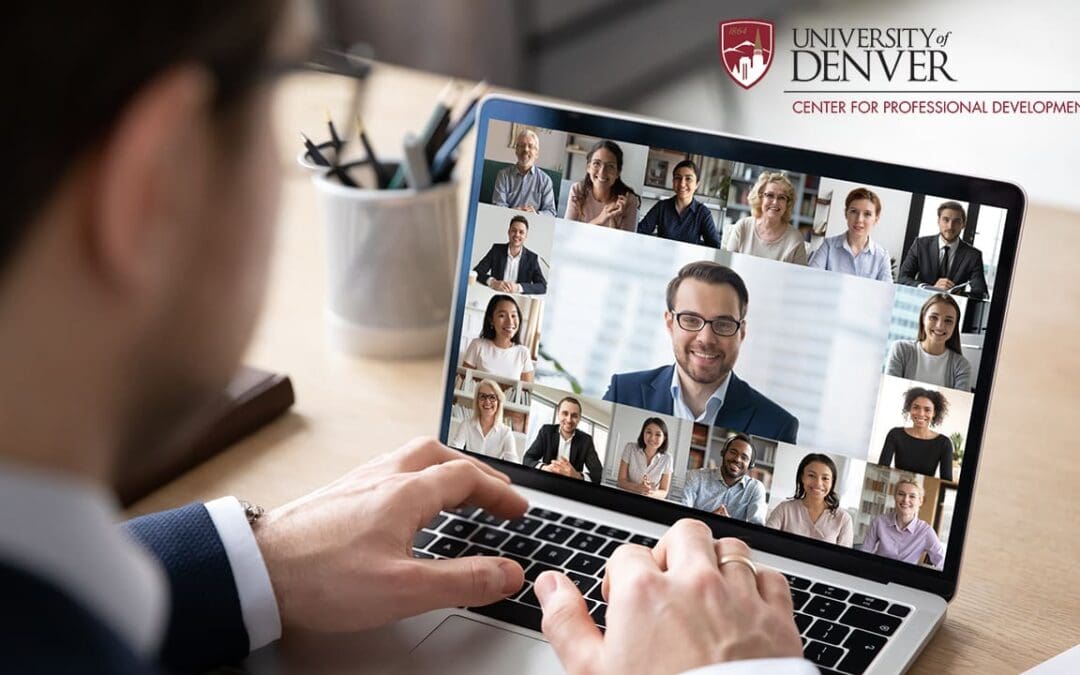The workplace is quickly evolving due to an increased reliance on technology, a shifting workforce that encompasses at least four generations of employees, and the changing consumer landscape. Add in the past year’s pandemic, which accelerated operational change into hyper-drive thanks to remote work, restructuring, and more, and managers are facing a new set of challenges and opportunities.
How can leaders and managers approach company missions, goals, and employee needs during times of transition that ensure short- and long-term achievement?
The Center for Professional Development at University of Denver can help. Two short courses starting in April can help you gain critical leadership skills to help you wade the waters of change.
Leading Virtual Teams
In 2020, the world witnessed a historic shift to remote work due to the pandemic. By 2025, an estimated 70 percent of the workforce will be working remotely at least five days a month, according to Forbes.
This three-session course will provide the knowledge to become a more effective virtual manager who can develop and support productive team communities that work across geography and time zones. The live, online short-course starts April 12.
Leveraging Generational Differences
In today’s workplace, managers may find themselves leading a multi-generational team spanning a 40-plus year age gap, and dynamics are shifting all the time. Each generation brings essential perspectives to the workforce, often informed by age, societal norms, and technology.
This course will help you navigate cross-generational management challenges, develop an actionable plan to bridge generational divides, and truly leverage the strengths of each of your team members for maximum communication, collaboration, and productivity. The one-session, live, online workshop will be held on April 27.
Visit www.du.edu/professional to learn more about these courses and other short-course and non-degree certificate options to develop leadership skills and advance your career.
Taking the Next Step
If the CPD noncredit short courses pique your interest, and you want to continue to gain leadership knowledge and skills, a graduate certificate or Master’s degree are a smart next step (and graduate certificate credits count toward a full master’s if you choose to go that route).
Through the Organizational Leadership program at University College, you will learn to cultivate ethical leadership skills and integrate strategy, innovation, and the emerging practices that inspire individuals and connect mission to values at organizations.
As you progress in your own leadership development, you’ll also uncover the ways effective leadership can transform lives, work, and social impact. The program will help you build the skills to effectively manage change, people, and processes within dynamic environments across sectors.
Learn more on the University College website.

